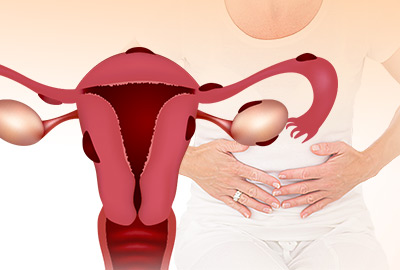What are irregular periods and how are they different to normal periods? How do women know if they are experiencing irregular periods or just normal fluctuations in their cycle? Check out the following article to learn more about irregular periods and how they can affect menopausal women.
What Should I Know about Irregular Periods?
Irregular periods are defined as any deviation off a woman's regular menstrual cycle. They are typically one of the earliest signs of menopause and appear when a woman reaches her 40s or 50s. These irregularities may cause some concern among women, but they are a natural and often inevitable aspect of the transition into menopause.

Regular periods are defined as bleeding phases that last for roughly five consecutive days and occur within a cycle that lasts an average of 28 days. Cycles that are between 25 and 31 days are well within the “normal” range. Usually, women discharge between two and eight tablespoons of blood during each period. While this is the textbook definition of normal periods, each woman can experience periods differently so her definition of normal will also be different.
Irregular periods are therefore defined as any deviations from each women's normal duration, interval, or amount of blood that is lost.
What Causes Irregular Periods?
Several factors can cause irregular periods, but for women who are experiencing menopause, irregular periods are most likely caused by the hormone fluctuations that trigger most menopause symptoms. However, because the experience can also be caused by a number of other factors, women who suspect that their irregular periods are caused by one of the following should seek a doctor's opinion.
Causes of irregular periods include:

- Poor nutrition
- Excessive alcohol, caffeine, or drug consumption
- Excessive exercising
- Weight gain or weight loss
- Anemia
- Miscarriage
- Recent birth
- Certain medications
- Thyroid dysfunction
- Uterine abnormalities
- Polycystic ovary syndrome (PCOS)
- Tuberculosis
- Diabetes
- Liver disease
- Cancer
Treatments for Irregular Periods
Women who want to learn more about irregular periods and how to manage them are advised to talk to their GP for more specific information. There is no need to suffer in silence as there are various treatments for menstrual irregularities that can greatly relieve this menopause symptom. Lifestyle changes, alternative treatments, and medications can all ease problematic irregular periods.
For the majority of women entering the natural menopausal transition, medical attention is not required; however, always consult your doctor if your symptoms become invasive.
Sources
- Hutchinson, Susan M.D. "The Stages of a Woman's Life: Menstruation, Pregnancy, Nursing, Perimenopause, Menopause". November 2007.
- Love, Susan M.D. Menopause and Hormone Book. New York: Three Rivers Press, 2003.
- BMJ Group. "Menopause: What is it?" Patient Leaflet. 2007


